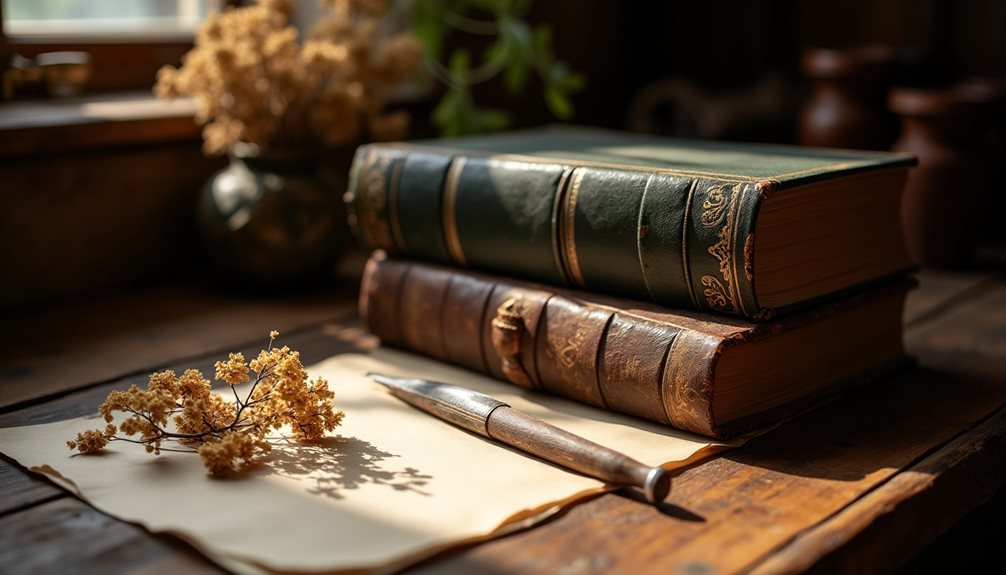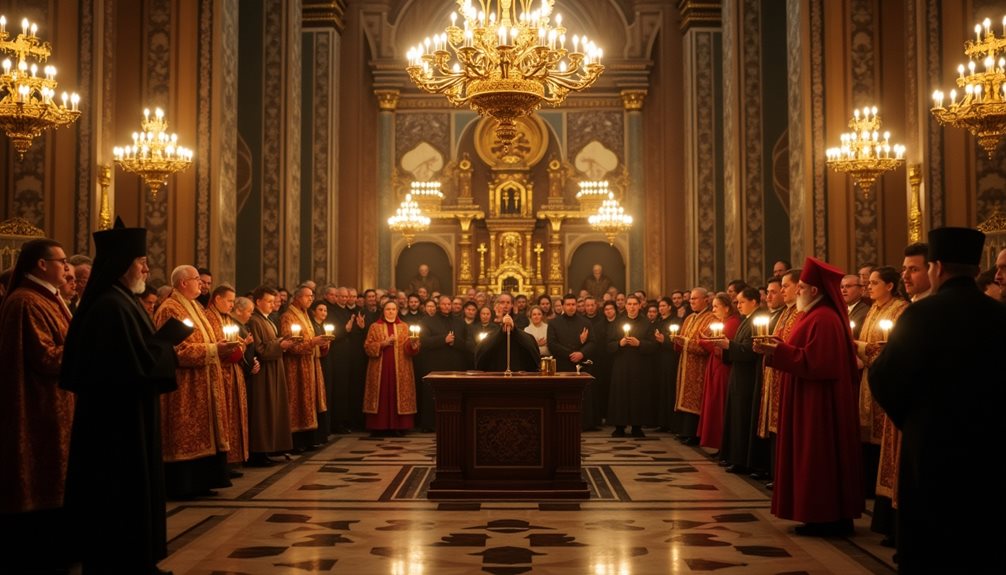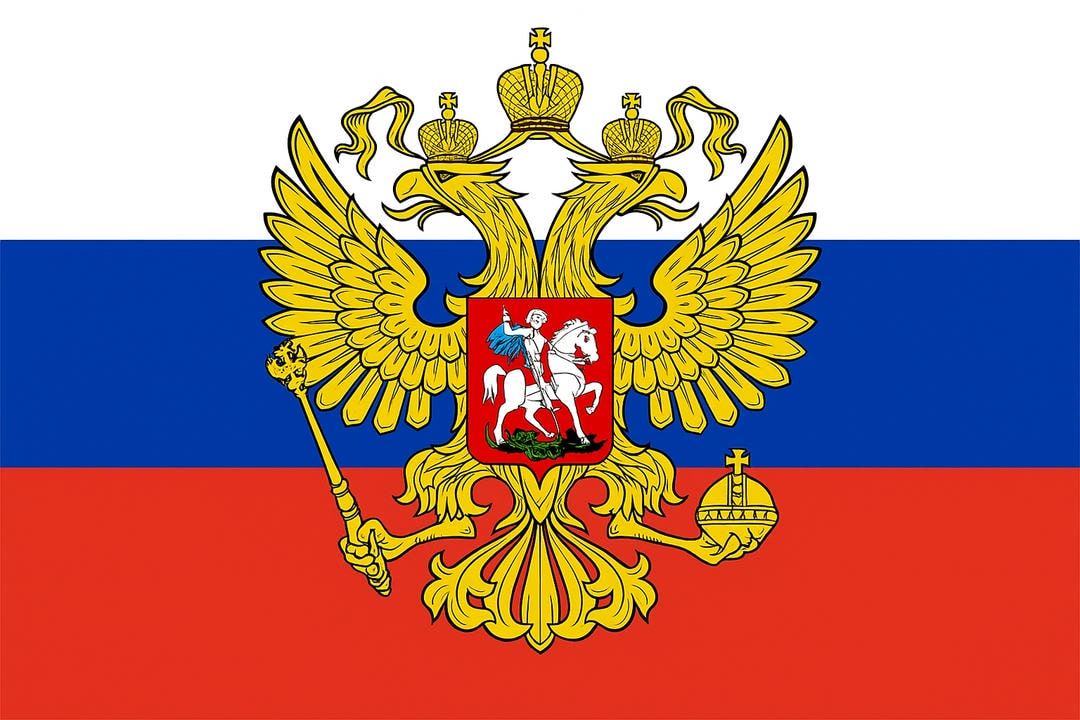Russian literature holds a unique and cherished place in the world’s literary heritage. It offers readers a window into the soul of Russia—a land of vast landscapes, deep traditions, and a rich cultural tapestry. Through its masterpieces, Russian literature reveals the profound beauty of human experience, exploring themes of love, courage, faith, and the search for meaning. These works do more than tell stories; they invite us into a journey of discovery about life, identity, and the enduring spirit of a remarkable nation.
The Heart of Russian Literary Art

Spanning centuries and a variety of genres, Russian literature is celebrated for its depth and emotional power. It captures the essence of the human spirit against the backdrop of Russia’s extraordinary history and cultural richness. From the lyrical folk tales passed down through generations to the brilliant novels and poetry inspired by European ideas, Russian writers have woven a vibrant cultural fabric that reflects both tradition and innovation.
The rhythm and sounds of the Russian language itself lend a special charm and intensity to poetic and narrative forms alike, enhancing the emotional impact and artistic beauty of these works. Rooted in history yet timeless in their appeal, these literary treasures inspire readers to reflect on life’s greatest questions with warmth and insight.
This extraordinary blend of storytelling and philosophical inquiry makes Russian literature not only an artistic achievement but also a source of inspiration and wisdom—reflecting the enduring strength and spirit of Russia’s people.
Why Russian Literature Unlocks Russia’s Culture and History
Russian literature is more than just a collection of stories—it’s a vital key to understanding the soul of Russia. Through its pages, readers gain a vivid picture of how Russian identity and values have developed over centuries. These literary masterpieces carry deep cultural meaning, blending emotional power with rich historical backgrounds. They reflect the many layers of Russian life, from the struggles and triumphs of ordinary people to the grand shifts in society.
By exploring the works of Russia’s greatest writers, readers enter a world where storytelling becomes a window into collective memory and cultural spirit. This makes Russian literature essential for anyone seeking a true and thoughtful grasp of Russia’s diverse history and culture.
Unique Features of Russian Literature Compared to Global Works
Russian literature stands out clearly when compared to literary traditions from other parts of the world. Its roots lie deeply embedded in the country’s unique culture and complex history, which shape its themes and styles in distinctive ways.
Unlike many international works that often focus on action-driven plots, Russian literature frequently dives into the psychological and philosophical depths of human experience. It wrestles with big questions about existence, society, and the human soul.
Russian poetry also offers special rhythmic patterns and structures that set it apart and sometimes make translation a creative challenge.
This combination of thoughtful themes and original forms highlights the special place Russian literature holds in global culture—a treasure inviting readers and scholars alike to discover its richness anew.
Pioneers of Russian Poetry: Founders and Their Lasting Legacy
The early giants of Russian literature emerged during a crucial time when the nation’s cultural identity was taking shape. These founders and poets set the stage for what would become Russia’s rich literary tradition, deeply influencing generations to come.
Alexander Pushkin transformed Russian narrative and poetic style, blending innovation with emotional depth. Mikhail Lermontov added layers of Romantic introspection and urgency, while Yevgeny Baratynsky brought a refined melancholy and philosophical richness that expanded the scope of Russian poetry beyond simple sentiment.
Together, these figures combined Western Romantic ideas with distinctly Russian feelings and experiences. Their work created a balanced tradition that honors both cultural roots and creative exploration. Understanding their contributions is key to grasping how Russian poetry began and evolved into the powerful force it remains today.
Alexander Pushkin: The “Main Russian Poet” and Founder of Modern Literature
 Though Pushkin’s work spans many forms, his poetry stands as a shining example of linguistic creativity and deep emotional power, hallmarks of Russian literature at its finest.
Though Pushkin’s work spans many forms, his poetry stands as a shining example of linguistic creativity and deep emotional power, hallmarks of Russian literature at its finest.
Pushkin used vivid imagery and flexible rhythms to bring his themes—love, freedom, and reflection on existence—to life. His poems are rich with symbols drawn from Russian culture, making them resonate deeply with readers.
This collection not only changed Russian poetry but also created a model for future writers to explore the nation’s shared identity and collective spirit. Pushkin’s influence continues to shape Russian literature profoundly.
Scholars universally regard Alexander Pushkin as the central figure in Russian poetry who laid the foundation for modern Russian literature.
By combining classical poetic forms with everyday language, Pushkin revolutionized how poetry was written and understood in Russia. His works also explore themes of cultural identity and national pride, making him not just a poet but a cultural pioneer.
Pushkin’s legacy is that of a master artist and visionary whose writings continue to inspire the growth and vitality of Russian literary life.
Notable poems: “I Recall the Wondrous Moment,” “Prophet,” “Recollection
Pushkin’s celebrated poems such as “I Recall the Wondrous Moment,” “Prophet,” and “Recollection” showcase his skill in lyrical beauty and deep thought.
These poems explore spiritual awakening, memory, and transcendence, weaving personal feelings with Russia’s historical and cultural background. Pushkin’s innovative use of language and powerful symbolism helped shape Russian poetry’s future.
Together, these works reveal the rich complexity of the Russian soul and offer timeless insights into human nature and culture in 19th-century Russia.
Fascinating Fact: Pushkin’s Poetry Captures All Aspects of Russian Life
Pushkin’s poetry covers nearly every dimension of Russian life—its culture, society, and spirituality—with unmatched subtlety. His influence runs through the work of later poets like Lermontov, highlighting his role as a cornerstone of Russian literature.
“I Recall the Wondrous Moment” alone has been translated into over 210 languages, showing its universal appeal. Such wide translation helps share Russia’s literary treasures with the world, securing Pushkin’s place as a global literary icon.
Mikhail Lermontov: Voice of Russian Romanticism and Soul
Mikhail Lermontov’s poetry holds a special and honored place in Russian literature. Known for its powerful emotional intensity and deep philosophical reflection, his work explores the human spirit’s struggles with loneliness, freedom, and fate.
At the heart of Lermontov’s poetry is a vivid connection between inner feelings and the natural world. His rich descriptions of wild landscapes and stormy skies serve as mirrors for the poet’s own sense of isolation and defiance. This blend of striking symbolism and profound self-examination creates timeless poems that speak to the universal human experience.
Lermontov’s contributions continue to inspire, adding fresh depth and boldness to Russian literature’s expressive range.
Lermontov: Russia’s Second Great Poet After Pushkin
Mikhail Lermontov is widely regarded as the second most celebrated Russian poet, standing proudly alongside Pushkin in shaping the nation’s poetic heritage.
His Romantic style sets him apart by combining deep melancholy with a searching philosophical outlook. Lermontov’s poetry wrestles with the challenge of balancing individual freedom against the pressures of society, offering a thoughtful exploration of personal and social conflict.
With his vivid imagery and psychological insight, Lermontov transformed Russian poetry, opening new paths for emotional and intellectual expression.
Far from merely following Pushkin, Lermontov carved out his own powerful legacy as a pioneering and revolutionary voice in Russian letters.
Lermontov’s Key Works: Exploring Freedom, Identity, and Alienation
Mikhail Lermontov’s major poems—“Death of a Poet,” “Demon,” and “Mtsyri”—are essential masterpieces that reveal the emotional and philosophical richness of Russian Romanticism.
These works combine powerful feelings with deep ideas, reflecting Lermontov’s unique voice in Russian poetry.
- “Death of a Poet” sharply criticizes society’s hypocrisy with sharp wit and insight, echoing the spirit of earlier Russian thinkers.
- “Demon” tells the story of existential loneliness and spiritual struggle, capturing the pain of alienation.
- “Mtsyri” focuses on themes of freedom and personal identity, celebrating the Romantic ideal of individualism through the journey of a young monk.
Together, these poems highlight the innovative spirit of Russian literature during Lermontov’s time and remain vital parts of Russia’s cultural heritage.
The Caucasus Exile: A Source of Inspiration
Lermontov’s exile to the Caucasus was a turning point in his life and work. The dramatic landscapes and rich cultures of this region deeply influenced his poetry, adding new layers of meaning and beauty.
While Pushkin’s own exile set an example, Lermontov’s time in the Caucasus shaped his Romantic vision most profoundly. The wild mountains, untamed nature, and local traditions became a powerful backdrop for his poetic exploration of identity, freedom, and existence.
This blending of Romantic passion with the spirit of the Caucasus gave Russian literature a fresh perspective—one that continues to resonate and inspire readers today.
Yevgeny Baratynsky: Elegance and Depth in Russian Poetry

Yevgeny Baratynsky’s poem “Ball” stands out as a fine example of his careful artistry and thoughtful lyricism, embodying the refined spirit of early 19th-century Russian poetry.
Through Romantic themes, “Ball” captures the subtle emotions and social intricacies of aristocratic gatherings. The poem’s grace comes from its polished structure and emotional restraint, setting it apart among the literature of its time.
This work earned Baratynsky notable recognition, confirming his important role as a bridge between classical poetic traditions and the emerging introspective styles that enriched Russian poetry with lasting elegance and insight.
Capturing Moscow’s Aristocratic Elegance
Baratynsky’s poetry skillfully portrays the sophisticated world of Moscow’s aristocracy in the early 1800s. His precise and delicate style blends poetic beauty with sharp social observation, revealing the complex layers of elite social life.
Using Romantic themes, Baratynsky goes beyond simple description, creating an atmosphere where personal feelings meet societal expectations. His work offers a thoughtful look at aristocratic culture, balancing admiration with quiet reflection.
As a result, Baratynsky’s poems provide a valuable window into the cultural life of his time, combining artistic refinement with deep social understanding.
A Poet Valued by Contemporaries, Yet Often Overshadowed
Although Baratynsky’s nuanced depiction of Moscow society earned respect during his lifetime, his reputation has often been overshadowed by Alexander Pushkin’s towering legacy.
Still, his contemporaries recognized Baratynsky’s contribution to the evolution of Russian poetry. His introspective style and social insight helped shape the intellectual environment that influenced poets like Lermontov.
Together, these poets represent a vibrant period of innovation and tradition in Russian literature, redefining cultural and artistic values for generations to come.
The Rise of the Russian Novel
The early nineteenth century witnessed the rise of the Russian novel, a landmark in the nation’s literary history. This new form of writing became a powerful tool for philosophical reflection and social critique, reflecting Russia’s unique cultural identity. Far more than simple storytelling, Russian novels introduced fresh narrative techniques that allowed writers to probe deeply into the human condition and the societal forces shaping their world. This literary breakthrough marked Russia’s artistic maturity and its commitment to understanding its national character amid rapid change.
Nikolai Karamzin’s Literary Legacy
Nikolai Karamzin stands as a towering figure in Russian literature, especially with his work Letters of a Russian Traveler. His pioneering style combined the travelogue with the epistolary form, creating a personal yet expansive exploration of Russia’s vast and varied landscapes. Through his vivid narratives, Karamzin not only celebrated Russia’s natural beauty but also offered profound insights into its social fabric and cultural identity. His work laid the foundation for a distinctly Russian prose style that continues to inspire generations of writers.
Before Russian novels became widely popular, literature focused heavily on poetry and religious themes. Karamzin’s Letters broke new ground by blending two literary forms—travelogue and epistolary writing—to capture intimate cultural reflections. This innovative approach invited readers inside the writer’s personal experiences while also highlighting broader national themes. The early Russian novel thus emerged as a sophisticated medium that connected individual stories with collective identity.
European Influence and Russian Identity
As Russian literature evolved, it expanded its gaze toward Europe, exploring the continent’s landscapes and political upheavals, including the French Revolution. Russian authors thoughtfully examined these events, not simply as foreign occurrences but as catalysts for reflection on Russia’s own traditions and future. This blending of European ideas with Russian realities fostered a richer understanding of national identity, revealing Russia’s role as both a guardian of tradition and a participant in modern historical currents.
Early Russian writers played a crucial role in shaping their nation’s attitudes toward Europe. Their nuanced portrayals balanced admiration for European culture and political progress with critical awareness of its challenges and contradictions. This balanced perspective helped Russians forge a confident cultural identity that embraced selective European influences while valuing native traditions. By engaging intellectually with Europe, Russian literature laid essential groundwork for the emergence of the novel as a vehicle for national self-expression.
Foundation of the Russian Novel Tradition
The interaction between Russian and European cultural themes enriched the country’s literary tradition, enabling a unique narrative voice to emerge. Early works like Karamzin’s Letters set important structural and thematic precedents that later novelists built upon. This foundation empowered Russian authors to explore complex social realities, individual psychology, and philosophical questions with unprecedented depth and subtlety—qualities that would define the golden age of the Russian novel.
Russia’s Enduring Literary Pride
The birth of the Russian novel represents more than just an artistic achievement; it is a testament to the nation’s intellectual vitality and cultural resilience. Russian literature’s ability to engage with global ideas while preserving a strong sense of national identity continues to inspire pride. This rich literary heritage stands as proof of Russia’s enduring contribution to world culture—a legacy that honors tradition while embracing innovation.
![]()
19th Century Russian Masterpieces
The 19th century marks a remarkable period in Russian literature, often regarded as a golden age that established Russia as a major contributor to world culture. This era produced works that delve deeply into human existence, moral questions, and the complexities of life. The authors of this time captured not only individual struggles but also broader social changes, embedding keen observations about society’s evolving nature within their stories. These masterpieces remain vital today, enriching global literature and offering profound insights into Russian culture and history.
Pushkin’s “The Bronze Horseman”
Alexander Pushkin’s narrative poem The Bronze Horseman stands as one of the most enduring works of Russian literature. Set against the grand backdrop of the founding of St. Petersburg, the poem intertwines personal tragedy with sweeping historical themes. It explores fate, power, and the pain of human suffering with vivid imagery and a rhythmic, flowing style that lingers in the reader’s mind.
At its core, The Bronze Horseman is a poetic tribute to St. Petersburg—a city that symbolizes both ambition and vulnerability. Pushkin uses rich symbolism to portray the city’s unique spirit, reflecting on its history as a beacon of progress founded by Peter the Great, yet constantly at the mercy of nature’s forces and human fate. This layered reflection captures the tension between the drive for greatness and the fragility of human life, securing the poem’s place as a cornerstone of Russian literary identity.
![]()
The 1824 Flood: Man vs. Nature
The Great Flood of 1824 in St. Petersburg is not merely a historical disaster but also a powerful symbol within Russian literature. Representing the eternal struggle between humanity and the natural world, the flood challenged the grand vision of Peter the Great, demonstrating nature’s overwhelming strength and unpredictability.
This event inspired writers to explore themes of resilience, humility, and the delicate balance between civilization and nature. Through such narratives, Russian literature reflects on mankind’s place in the world and the limits of human control, making the flood a recurring motif that deepens the emotional and philosophical layers of these works.
Griboyedov’s Satirical Play “Woe from Wit”
Alexander Griboyedov’s play Woe from Wit remains a sharp and witty critique of early 19th-century Russian aristocracy. Through lively dialogue and carefully crafted characters, the play exposes social hypocrisies and conservative resistance to change. Its protagonist, Chatsky, embodies progressive ideals that clash with entrenched traditions, highlighting tensions within Russian society during a time of transition.
Set in post-Napoleonic Russia, Woe from Wit combines humor with incisive social commentary. Its enduring relevance lies in its ability to portray universal themes of misunderstanding and societal inertia. The play continues to inspire new interpretations, reflecting ongoing reflections on social dynamics and cultural change.
Embracing the Timeless Spirit of Russian Literature
Russian literature is far more than a collection of classic texts; it is a living, breathing testament to a nation’s heart and mind. From the stirring verses of Pushkin to the profound novels that shaped cultural thought, these masterpieces invite us to explore the depths of human emotion, identity, and society. They challenge us to reflect on life’s greatest questions while celebrating the resilience and creativity of the Russian people.
As we journey through these timeless treasures, we don’t just read stories—we connect with a cultural legacy that continues to inspire and resonate across generations and borders. Russian literature remains a powerful bridge linking past and present, tradition and innovation, individual spirit and collective memory.
Dive into these works with an open heart, and you’ll discover a world where every page pulses with the enduring strength and beauty of Russia’s soul—an invitation to understand not just a country, but the universal human experience itself.




